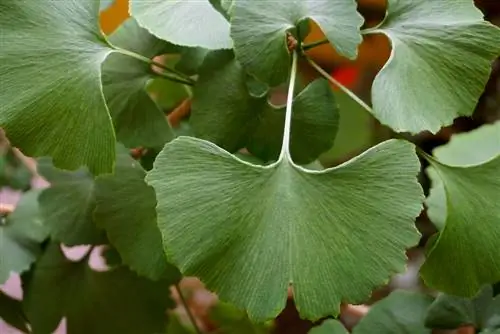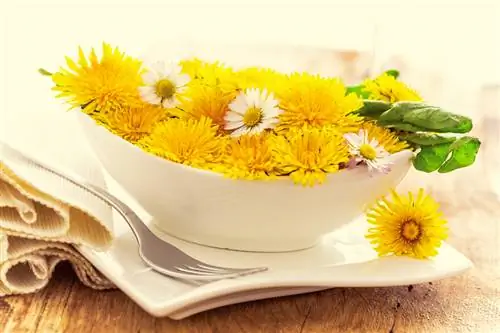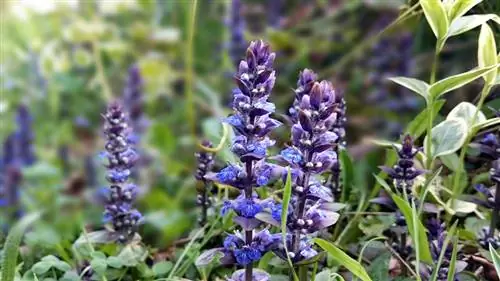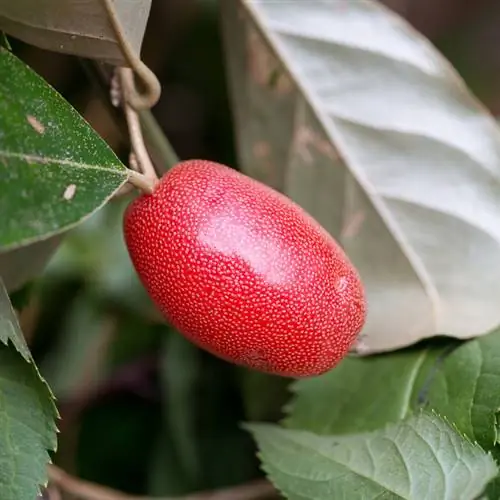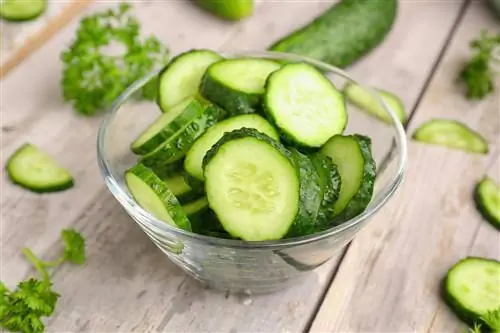- Author admin leonars@hobbygardeners.com.
- Public 2023-12-16 16:46.
- Last modified 2025-01-23 11:21.
Ginkgo is known to many people from the medicine or pharmaceutical industry. Means made from it are primarily intended to help your memory. The positively effective ingredients are also obtained from the leaves, but in isolated form.
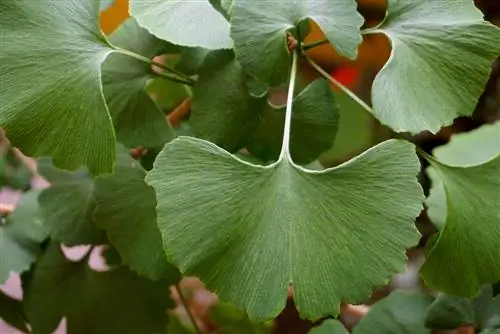
Are ginkgo leaves edible and safe?
Ginkgo leaves are edible in small quantities, but they can cause allergies in sensitive people due to the alicyclic acids they contain. If consumed in excess, symptoms of poisoning and gastrointestinal problems can occur.
What do ginkgo leaves look like?
The leaves of a ginkgo tree are distinctive but also very individual. As the common name fan leaf tree suggests, the leaves are fan-shaped. They have long stems and sit singly on the long shoots or in clusters on the short shoots. In winter the ginkgo is bare.
In spring, the hardy ginkgo sprouts fresh green leaves again. Some varieties also have variegated or striped leaves. The foliage only appears after the rather inconspicuous flowers. In autumn the leaves shine bright yellow before falling off again.
Is eating the leaves safe?
Even though ginkgo is known as a medicinal plant, you should prevent your children from consuming the leaves in large quantities. In addition to pharmaceutically usable flavonoids, they also contain other substances such as alicyclic acids, which can trigger allergies in sensitive people, and larger quantities can even lead to symptoms of poisoning. The seeds, on the other hand, are often used as a spice in Asia.
What happens if you consume excessive amounts of ginkgo leaves?
Excessive consumption can lead to allergic reactions and gastrointestinal problems. The severity of the symptoms depends on the content of ingredients and individual sensitivity. The leaves are therefore not suitable for medical self-treatment.
The ginkgo leaf in brief:
- very striking appearance
- each leaf individually shaped
- usually fan-shaped and bookended
- Color: mostly green, some varieties also variegated
- Autumn color: bright yellow
- drops in late fall or winter
- edible in small quantities
- can cause allergies and/or poisoning
Tip
If you want to use ginkgo to help your memory perform better, then the best way to do this is with a drug from the pharmacy. The leaves also contain substances that can cause allergies or, in large quantities, poisoning.

